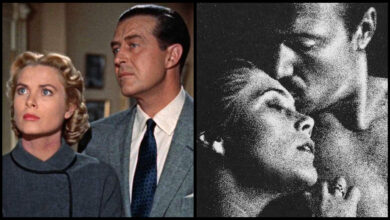The Handmaiden: A Masterpiece of Intimacy, Deception, and Liberation
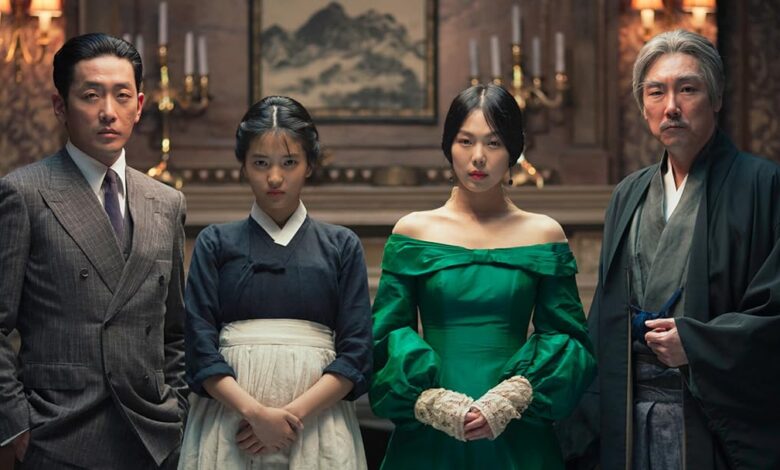
Park Chan-wook’s The Handmaiden is a cinematic labyrinth where beauty conceals danger and desire becomes the key to freedom. Inspired by Sarah Waters’ Victorian novel Fingersmith and transplanted to 1930s colonial Korea under Japanese rule, the film is a psychological thriller, romantic drama, and quietly defiant revolution all in one. It is not only Park’s most seductive work, but perhaps his most emotionally daring—an experience that lingers like perfume on silk.
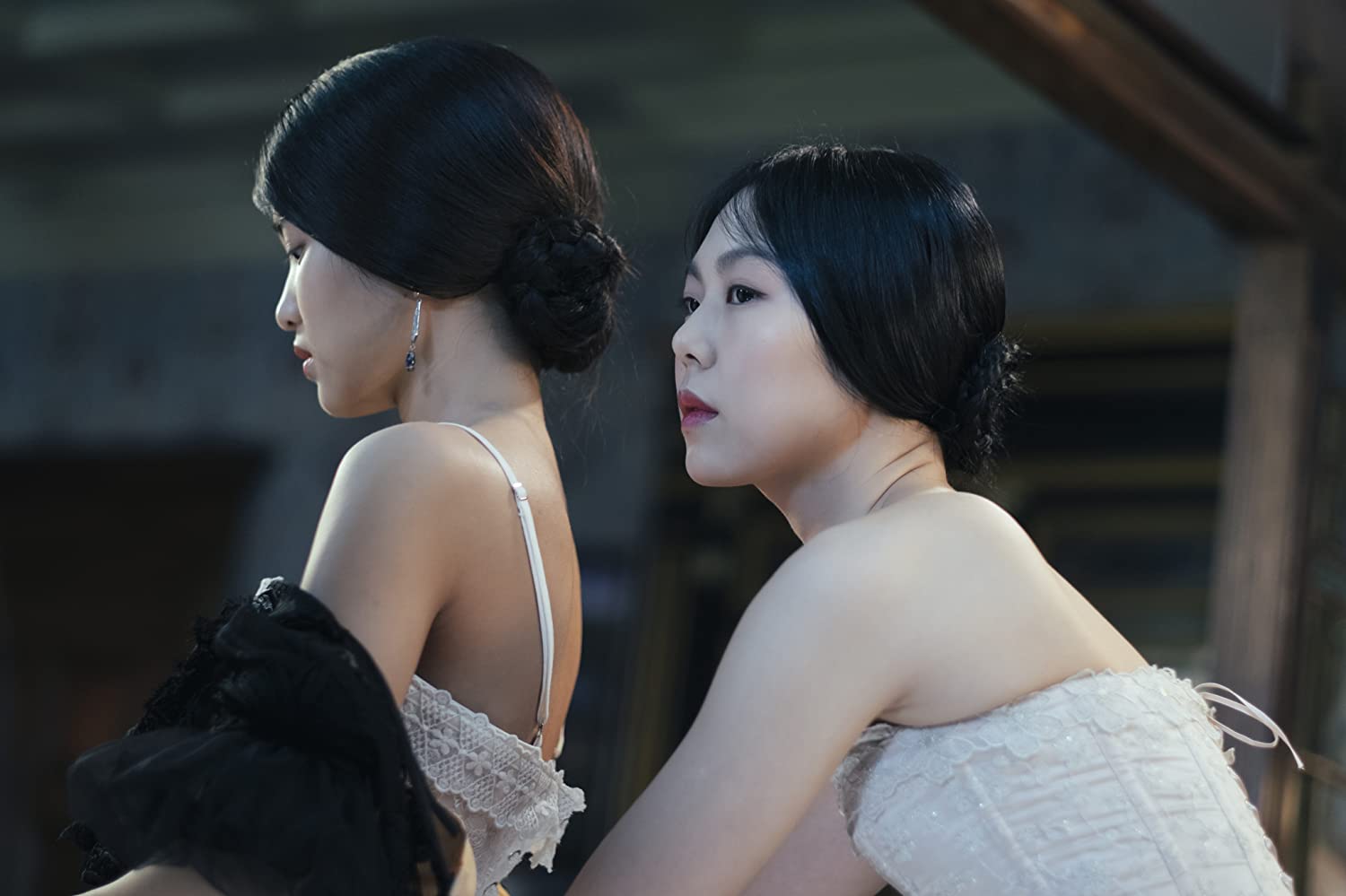
The story opens with Sook-hee, a pickpocket raised among thieves, who is recruited by a conman posing as Count Fujiwara. Together, they plan to deceive a secluded Japanese heiress, Lady Hideko, by planting Sook-hee as her maid. The goal is to nudge Hideko into marriage with the Count, institutionalize her, and steal her inheritance. But the scheme begins to unravel when Sook-hee and Hideko develop a relationship that neither of them anticipated—one built on unexpected tenderness, mutual curiosity, and emotional intimacy.
What follows is not a traditional love story. Instead, Park invites the viewer into a world where performance masks truth, and where every gesture—be it a brush of fabric or the flick of a glance—carries meaning. The film is told in three parts, with each section peeling back the carefully layered deception to reveal different facets of its characters and their motivations. The structure mirrors the very idea of intimacy: we believe we know someone, until they reveal more.

In his treatment of the relationship between Sook-hee and Hideko, Park Chan-wook avoids sensationalism. Their moments of closeness are not staged as spectacle but portrayed with emotional realism. There is nervousness, vulnerability, and discovery in how they learn to trust—and eventually protect—each other. Their connection is rooted in shared pain and an unspoken longing for escape, not just from physical confinement, but from the roles society has forced upon them.
The film’s visual language is rich with duality. The house where most of the story unfolds is a hybrid structure—half Japanese, half Western—reflecting the split identities of those who live within it. It is a prison disguised as a palace, a place where women’s voices are trained to please and their bodies reduced to literary metaphors. Hideko’s existence, ruled by her perverse uncle Kouzuki, is one of silent endurance. Her readings of rare erotic literature before an audience of men are recitals of captivity, not expression.
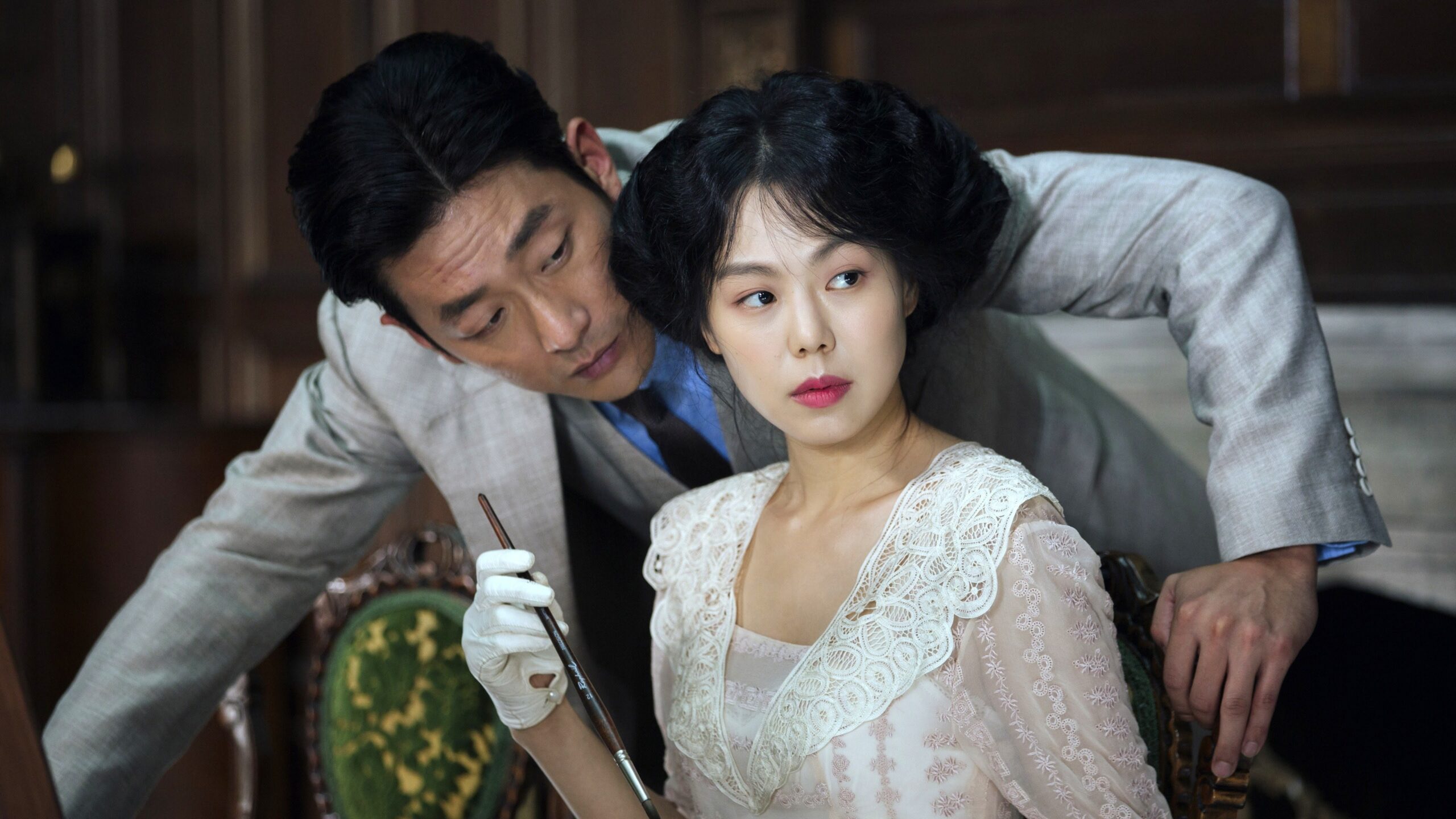
But the brilliance of The Handmaiden lies in how it turns these performances on their head. Hideko is not the fragile creature she first appears to be, and Sook-hee is far more than a pawn in someone else’s game. Both women, in different ways, learn to reclaim agency. What begins as a story of manipulation becomes a story of survival. And eventually, rebellion.
Park’s direction is meticulous yet intimate. His camera glides through rooms like a silent observer, capturing the minute shifts in breath, the tremor of fingers, the tightening of a corset. The attention to detail extends beyond aesthetics—it’s psychological. Every object in the frame feels loaded with implication. Nothing is merely decoration; everything is charged with the characters’ emotional undercurrents.
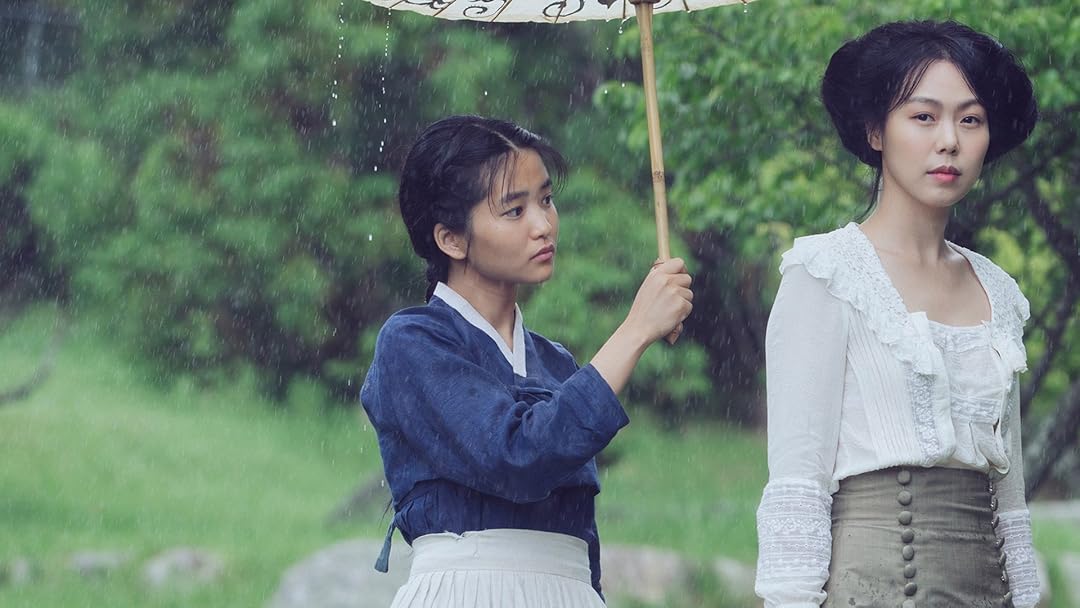
The performances are exceptional. Kim Min-hee as Lady Hideko delivers a haunting portrayal of a woman raised in captivity—graceful on the surface, but deeply scarred beneath. Kim Tae-ri, in her breakout role as Sook-hee, brings sharp wit and resilience, evolving from streetwise accomplice to protector and partner. Their chemistry is electric, not because it is loud or provocative, but because it feels alive, fragile, and hard-earned.
The score by Jo Yeong-wook further elevates the film’s emotional register. Its soft strings and melancholic piano lines echo the restraint of the characters, underscoring both the beauty and sorrow of their predicament. The music, like the film itself, is sensual without being sentimental.
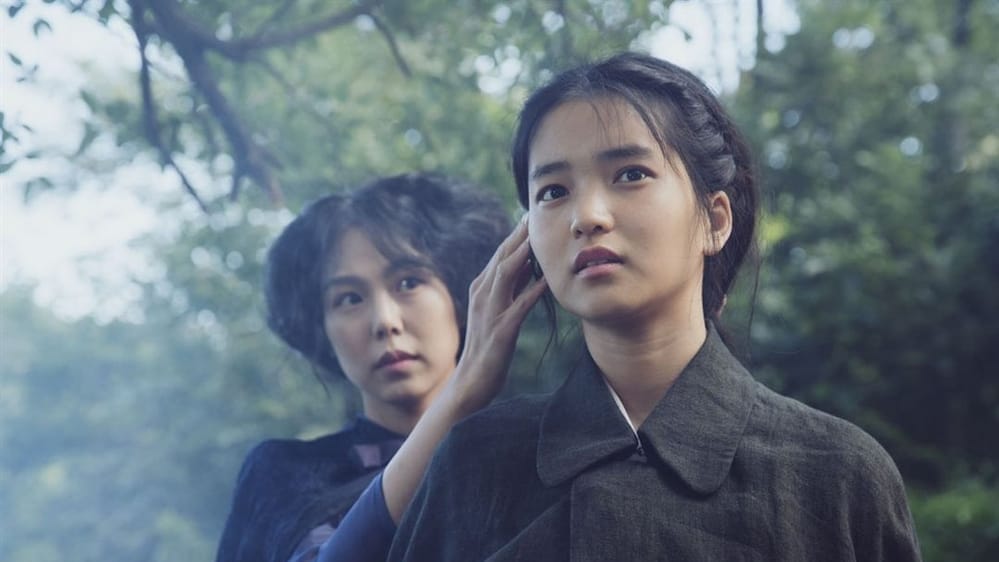
What ultimately makes The Handmaiden a modern masterpiece is its refusal to fit comfortably into any single category. It is a thriller, but also a love story. It is a period piece, but vibrantly modern in its themes. It critiques patriarchy, colonialism, and the commodification of women’s bodies without ever turning didactic. It is dark, yet deeply humane.
By the film’s end, Sook-hee and Hideko’s triumph is not marked by dramatic violence or public confrontation. It is quiet, almost defiant in its tenderness. They choose each other not in the shadows, but in the open sea—free at last from scripts written by others.
![]()
The Handmaiden is about many things: power, illusion, betrayal, and performance. But at its heart, it is about two women who refuse to be trapped in stories that do not belong to them. They tear those stories apart and write their own—with courage, with love, and with the kind of intimacy that no one else can claim. This is cinema not just of sensation, but of revelation.


